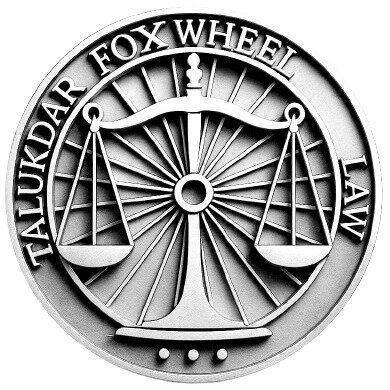Best Child Visitation Lawyers in Guwahati
Share your needs with us, get contacted by law firms.
Free. Takes 2 min.
Free Guide to Hiring a Family Lawyer
List of the best lawyers in Guwahati, India
About Child Visitation Law in Guwahati, India
Child visitation law in Guwahati, and broadly across India, concerns the rights of non-custodial parents (often fathers, but sometimes mothers or guardians) to spend time with their children after separation or divorce. Visitation ensures the child maintains a meaningful relationship with both parents, balancing the child's welfare and parental rights. Local courts in Guwahati, including the District Family Court, typically handle such cases under national statutes customized by local legal practices and cultural norms.
Why You May Need a Lawyer
Navigating child visitation issues can be complex and emotionally charged. You may need legal help in Guwahati for reasons such as:
- Establishing a formal visitation schedule after separation or divorce.
- Addressing denial or obstruction of visitation rights by the custodial parent.
- Modifying existing visitation orders owing to changed circumstances (relocation, work schedules, child’s needs, etc.).
- Ensuring the visitation is safe and in the child's best interest, especially in sensitive situations like allegations of abuse.
- Enforcing visitation orders if the other party refuses access.
- Navigating cases where grandparents or other relatives seek visitation rights.
- Guidance on procedure, evidence collection, and presenting your case effectively.
Local Laws Overview
In Guwahati, child visitation matters are primarily governed by India's broader family laws, such as:
- Guardian and Wards Act, 1890: Empowers the courts to decide visitation based on the best interests of the child regardless of the parents' religion.
- Hindu Minority and Guardianship Act, 1956: Applicable to Hindus, provides that the welfare of the child is paramount.
- Personal Laws: Muslims, Christians, and other religious communities may have distinct personal laws, but Indian courts look primarily at the child's welfare.
Family Courts in Guwahati follow a child-centric approach, focusing on stability, safety, and the emotional and developmental needs of the child. Non-custodial parents usually get visitation unless restricting access would serve the child's welfare. The courts can specify days, timings, and even location of visits, and either parent can request modification as situations change.
Frequently Asked Questions
What is child visitation?
Child visitation refers to the right of a non-custodial parent or guardian to spend time with their child after separation or divorce, as ordered by the court or agreed upon by both parents.
Who decides child visitation arrangements in Guwahati?
The District Family Court in Guwahati typically decides visitation arrangements if parents cannot mutually agree, always prioritizing the child's best interests.
On what basis do courts in Guwahati grant visitation rights?
Courts consider the child's age, health, emotional bonds, educational needs, parental conduct, and the child's wishes (if mature enough) to set visitation terms.
Can visitation orders be changed later?
Yes, either parent can approach the court to modify visitation arrangements if circumstances change, such as relocation, remarriage, or changes in the child’s needs.
What if the custodial parent denies visitation?
If denied visitation, the non-custodial parent can approach the Family Court to seek enforcement of the order. Frequent, unjustified denials can lead the court to reconsider custody.
Do grandparents have visitation rights in Guwahati?
In certain situations, grandparents or other relatives can apply for visitation if it serves the child's welfare, though recognition is not automatic and subject to judicial discretion.
Is supervised visitation possible?
Yes, when the court believes supervised contact is necessary for the child's safety or emotional well-being, it can order supervised visitation-often with a family member or court-appointed professional present.
Can a child refuse to meet the non-custodial parent?
If a child refuses visitation (especially older children), the court may consider their opinion but will generally investigate underlying causes before modifying an order.
Are visitation rights affected if maintenance is not paid?
Legally, visitation rights and maintenance (child support) are separate issues. A parent’s failure to pay does not automatically lead to loss of visitation rights, though the court may review the overall situation.
How long does the legal process for visitation take in Guwahati?
The timeline varies depending on case complexity, evidence, and court schedules. While courts aim to resolve family matters promptly, interim relief for temporary visitation may be granted relatively quickly.
Additional Resources
If you need support, information, or wish to better understand your rights and procedures regarding child visitation in Guwahati, consider these resources:
- District Family Court, Guwahati: For filing applications, seeking orders, or clarifications regarding procedures.
- Assam State Legal Services Authority (ASLSA): Offers free and subsidized legal assistance to eligible applicants.
- National Commission for Protection of Child Rights (NCPCR): Provides information and guidance on child welfare.
- Child Welfare Committees (CWCs): May offer resources and guidance if child protection issues are involved.
- Local NGOs and Counseling Centers: For mediation, emotional support, and parenting resources during and after litigation.
Next Steps
If you believe you need legal advice or assistance on child visitation in Guwahati, you may want to proceed as follows:
- Document your situation: Gather any legal documents, evidence of existing arrangements, and records of communication relating to visitation.
- Consult a local family lawyer: An experienced advocate can explain your rights, likely outcomes, and help you draft or respond to petitions.
- Explore Mediation: Family courts often encourage amicable settlements or mediation, which can be less adversarial than litigation.
- File a petition if needed: Should negotiation fail, your lawyer can help you submit an application to the Family Court for visitation rights or modification.
- Follow legal advice: Adhere to court orders and legal counsel for the best interests of your child and to safeguard your rights.
Remember, the process can be emotionally challenging, but legal professionals and support organizations in Guwahati can guide you every step of the way to ensure the welfare of your child.
Lawzana helps you find the best lawyers and law firms in Guwahati through a curated and pre-screened list of qualified legal professionals. Our platform offers rankings and detailed profiles of attorneys and law firms, allowing you to compare based on practice areas, including Child Visitation, experience, and client feedback.
Each profile includes a description of the firm's areas of practice, client reviews, team members and partners, year of establishment, spoken languages, office locations, contact information, social media presence, and any published articles or resources. Most firms on our platform speak English and are experienced in both local and international legal matters.
Get a quote from top-rated law firms in Guwahati, India — quickly, securely, and without unnecessary hassle.
Disclaimer:
The information provided on this page is for general informational purposes only and does not constitute legal advice. While we strive to ensure the accuracy and relevance of the content, legal information may change over time, and interpretations of the law can vary. You should always consult with a qualified legal professional for advice specific to your situation.
We disclaim all liability for actions taken or not taken based on the content of this page. If you believe any information is incorrect or outdated, please contact us, and we will review and update it where appropriate.












